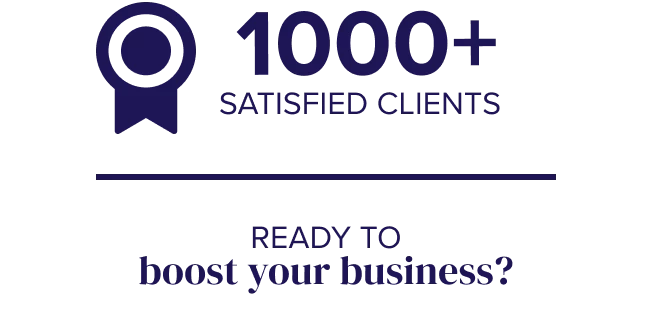Tax tips for limited companies
Due to the recent increase in the corporation tax rate, it’s become even more important to ensure that tax bills are minimised where possible. The list below includes many common tax-saving measures which can be used to legally reduce company tax bills. For Ellis & Co clients, it is likely that many of these tips are already being considered and implemented where possible. If you have any queries in relation to the tips below please contact Ellis & Co.
Additional expenditure to reduce profits:
Corporation tax is charged on a company’s taxable profits. The lower the profit, the lower the tax bill. Below are some ways to reduce a company’s taxable profits by including additional business expenditure
- Salary for spouse or other family members: if a director’s spouse or other family members carry out unpaid work for the company, in some cases it may be possible to add them to a payroll scheme and pay them a salary. This works well if they have no other income (or a low income)
- Pension contributions: rather than directors making pension contributions from their taxed income, it is beneficial for a company to make ‘employer pension contributions’ for directors. This will reduce taxable profits and so reduce corporation tax. Generally, the maximum allowed contribution is £60,000 per annum (but this depends on other factors)
- ‘Trivial benefits’: a company can give gifts of up to £50 to employees (including directors) as long as the gift isn’t cash (or a cash voucher), and isn’t a reward for their work / performance, and isn’t in their contract. There is a limit of £300 per year for directors. In practice therefore it would be possible to provide each employee with a £50 shop voucher on their birthday
- Use of home as office: where directors work from home, a charge can be made in the company accounts to reflect this, thereby reducing taxable profits and corporation tax
- Pre-trading and pre-incorporation expenditure: in many cases it is possible to reduce a corporation tax bill by claiming for expenditure incurred before trading commenced, or even before the company was incorporated
- Mobile phone: directors should take out their mobile phone contract in the name of the company to reduce taxable profits
- Repairs / maintenance work on buildings: work undertaken on a company’s premises is often automatically treated as ‘capital improvements’ which do not help reduce a company’s tax bill. It’s important to determine exactly what type of work was undertaken – often, even quite substantial work can be correctly treated as ‘repairs & maintenance’ which will reduce taxable profits and therefore corporation tax
- Claim all business expenses: often a director may pay for low value expenses from cash or a personal bank account. This expenditure is often omitted from the company accounts and therefore will not reduce the company tax bill
- Claim for all business mileage: if a personal vehicle is used for business trips, you should ensure that the details are noted and a mileage claim made. The standard mileage rate is £0.45p for the first 10,000 miles in a tax year and £0.25 thereafter. You can also claim for business miles undertaken in a company car if you pay for fuel personally, and for business miles undertaken in an EV if the car is charged at home and electricity paid for personally
- Staff entertaining: a company can pay for annual staff events (and reclaim the VAT on such events) such as Christmas parties. This expenditure is ‘tax-deductible’ and so will help reduce corporation tax. There is a limit of £150 per head for such events. This applies even to single-director companies
- Life assurance / medical insurance: a company can pay for life assurance or medical insurance for employees providing that it is included as a ‘benefit in kind’ if the employee (or their family) would be the beneficiary. Paying from the company in this way is often more cost effective than paying such costs from personal funds
Assets / capital allowances:
There are special rules for claiming tax deductions when purchasing company assets. Certain assets can be very tax-efficient whereas others are not.
- Electric vehicles: currently the entire cost of a new electric vehicle can be treated as a deduction from the company profits. For a car costing £50,000, this could save the company up to £13,250 of corporation tax. When combined with the low ‘benefit in kind’ rates applicable to electric vehicles, this makes EVs a very tax efficient purchase for a company. These rules often apply even when a vehicle is financed (but this depends on the type of finance agreement)
- Annual Investment Allowance (AIA): companies can invest up to £1m per annum on qualifying assets and reduce their taxable profits by the full cost of the asset. This applies to assets financed on hire purchase and some other finance agreements. If your company year end is approaching and the company has made significant profits, it may be worth investing in assets before the year end to avoid a hefty tax bill
- Vans and other commercial vehicles: the tax relief usually works as per EVs above (although is subject to AIA limits), but for vans and commercial vehicles, VAT can usually be reclaimed too. Benefit in kind rates are also low if there is private use
- Integral features: although most capital expenditure on buildings does not qualify for capital allowances (and therefore does not help reduce your company tax bill), some types of expenditure (e.g. cold water systems, electrical systems, ventilation systems etc) are classed as ‘integral features’ and qualify for the Annual Investment Allowance as noted above. Integral features can often be missed during building projects as the building contractor may not separate these out on their invoices
Government tax relief schemes
- Research & Development tax relief: if a company does work on innovative projects in science and technology it can reduce its tax bill (or even get a payment from the Government in some cases) by claiming research & development tax relief
- Patent Box tax relief: if a company makes money from its patents, it may be able to benefit from a much lower corporation tax rate by claiming for Patent Box relief
- Cycle scheme: this scheme enables employees (including directors) to save tax and National Insurance when purchasing a bike
Other tips to benefit your company
- Associated companies: If a company is ‘associated’ with another company (e.g. under the control of the same shareholders) it can increase both companies tax bills due to the way that the new corporation tax bands work. It may be worth considering whether associated companies are required
- Late filing penalties / interest: companies can be charged various late filing penalties or interest if filing deadlines are not met, or tax payments not made on time. These penalties can quickly mount up
- Tax losses: companies which make losses in a year should ensure that these losses are carried forward (or backward) and offset in the most tax-efficient way possible
- Interest on early payment of tax: if a company has the funds to pay corporation tax early, HMRC will pay interest on amounts paid early
- Employment allowance: currently certain employers can reduce their employer’s National Insurance costs by up to £5,000 by taking advantage of the employment allowance
Looking for tax support for your business? Speak to the team at Ellis & Co today!





